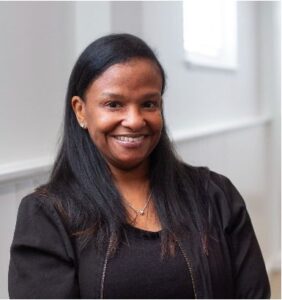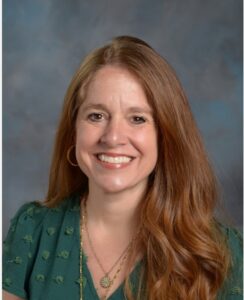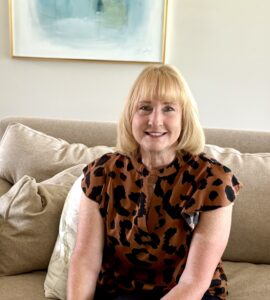By Katie Ginn
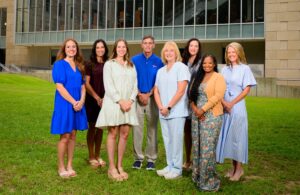
MCL Editor Katie Ginn recently interviewed eight school counselors from metro Jackson independent schools about what God has taught them through their work and what encouragement they’d like to share with parents and students. Plus, don’t miss nuggets of wisdom from more school counselors at the end!
Amy Thornton
High-school counselor, Hartfield Academy
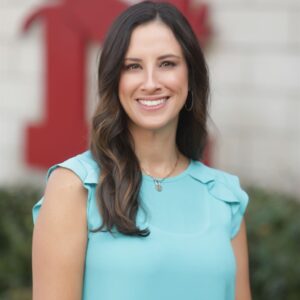
What she does: Guidance counseling, testing, college and career prep, course requests, and dual credit coordination.
Issues she sees most: Stress and anxiety.
What she emphasizes with students: Pointing them to Christ at every turn. Any time I can pray with a student, I feel like it helps them refocus on what’s most important, which is Christ. I try to remind them, there’s nothing you have been through that Jesus your Savior didn’t walk through.
Hardest part of her job: Reaching every student. I try to be present at break and lunch and make eye contact and say hello, just to get a good feel for how they’re responding. Then I follow up with hey, why don’t you come see me and we’ll just do a check-in? Once I get them in here, I can have a more in-depth conversation.
Favorite part of her job: Going on the mission trips with them, because it is so fulfilling to get to go minister and watch them minister to people. And I’m able to really bond with them on those trips.
Biggest lesson God has taught her through her work: Everything is not black and white. (laughs) Proverbs 18:17 says, “The person who states his case first seems right, until the other comes and examines him.” That helps me hold off on judging someone.
What she wishes parents understood: To just let their kids be kids, and maybe not push them so hard.
What she wishes students understood: That this is just a small portion of their life, and they’ll look back one day and what seemed monumental right now is a blip on the radar.
Her biggest wish for students when they graduate: That they would stay Christ-centered, continue to stay in church – so, continue to be who they are and not let the world change them.
Blair Riley
Guidance counselor, Christ Covenant School
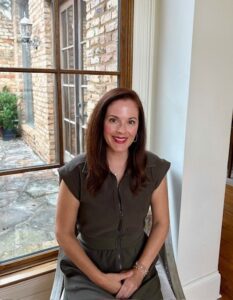
Students she interacts with most: Mostly sixth to eighth grade and mostly girls. But we have a guy on staff, Bobby Epps, who is part time, and he will work with some of the guys.
Issues she sees most: In elementary, it’s children who either have parents who are ill or maybe have some anxiety. The most common things are anxiety and friendships (regardless of age).
What she emphasizes with students: Number one, I pray with every student or parent that comes into my office. And I almost always give them a scripture.
With elementary kids, we talk about the THINK acronym: Is what we’re about to say true, helpful, inspiring, necessary, kind? Also, we can’t control what other people say to us, but you don’t have to let it steal your joy.
With the older kids, we talk about the ways you can be in gossip. Are you an instigator, a participant, do you listen, or do you walk away?
For anxiety, we’ll do grounding techniques.
Hardest part of her job: It’s hard to give it to the Lord and not try to take it home and fix it all.
Best part of her job: Praying with everyone. To me, it’s increased my faith.
Biggest lesson God has taught her through her work: That I can’t do this job without Him. And that the mistakes I’ve made when I was younger have made me a better counselor.
What she wishes parents understood: That God is sovereign over your child’s life. We have to be OK with them walking a different path than we might have chosen, but to constantly make eye contact, ask questions, and try to lead with a balance of grace and obedience.
What she wishes students understood: Confidence in Christ and compassion for others.
Brandi Benjamin
Office manager, The Redeemer’s School (K4-8)
What she does: We have counselors who come in through The Net. If it’s an occasion when they can’t come, I’ll talk to the students.
Students she interacts with most: Mostly the younger kids. The majority of the ones I saw last year were second through fourth graders.
Issues she sees most: The older students, usually it’s more about attitude. The smaller kids, it’s probably more of trying to fit in or maybe understanding rules.
What she emphasizes with students: You have to respect an adult. You can express your feelings, but in a respectful way. I will find myself trying to calm a lot of students down.
Hardest part of her job: Some situations you see that just break your heart, and you can’t do anything about it but pray.
Biggest blessing of her job: All of our students have felt safe enough to come and talk to me about things they have going on, and I feel like that’s a blessing.
Biggest lesson God has taught her through her work: Compassion and non-judgment. Some kids come in with dirty clothes or smell a certain way. So, not judging that kid, and not even taking it out on that parent, because you don’t know what they have going on.
What she wishes parents understood: That a lot of things start at home, and although their children are with us eight hours out of every day, they still have to do their part.
What she wishes students understood: That it’s not that we don’t want to have fun … but that school is a time for learning.
Her biggest wish for students as they transition to ninth grade: That they succeed in whatever they do, they work hard, they try their best and show that they learned something.
Casey Rowland
Elementary counselor, Madison-Ridgeland Academy
What she does: Meet with children if their parents or teacher refer them. But probably my main role is a character education program called God Glimpses. Every month, I go into the classrooms and do a lesson on a characteristic of God and how that informs our character.
Issues she sees most: General anxiety. In fourth and fifth grade, I see some friendship and relationship issues. But especially with the younger ages, it’s anxiety.
Hardest part of her job: I’m not called to fix it. I’m just called to sit with them in it and feel the weight of it with them. There have been nights when I’ve woken up worrying about a child. But it is a grace to me because it forces me to be dependent on God.
Biggest blessing of her job: The relationships I get to build with the kids and teachers. My principal also lets me bring the fun. We do a Friday dance party: At the end of the day, I’ll come over the intercom and do the announcements, and then I play a song and everybody dances.
Biggest lessons God has taught her through her work: That I don’t have to have all the answers, and I don’t have to fix everything. There really is power in just being with somebody.
What she wishes parents understood: That there is no perfect way to parent your child. If you were the perfect parent, your kid wouldn’t need Jesus. God will use the things you did great and the things you totally failed at.
What she wants students to understand by the time they leave fifth grade: The Father’s delight in them. I mean, truthfully, did you wake up today and say, ‘God delights in me’? If I did, I would be a much kinder, more gracious person.
Claire Jordan
School counselor, First Presbyterian Day School (K-6)
What she does: I meet with students individually. I also teach a guidance lesson with kindergarteners weekly and first through sixth grade monthly.
What she emphasizes with students: With kindergarten through second grade, I focus more on identifying their emotions. Third through sixth grade, I’m teaching them how to regulate. So if they love soccer, then when your sister makes you mad, you’re going to go outside and kick the soccer ball.
Hardest parts of her job: Helping parents and kids understand that it’s OK to feel upset and not have everything figured out. And that if you’re struggling with emotions or being motivated in school, it takes time to work through that.
Another challenge is that the kids’ days are so busy that they don’t really have time to reflect on how they feel.
Best part of her job: If we’re reflecting on the past week, and I ask, what did you do when you got mad? And they say something like, ‘Well, I used the breathing technique we talked about.’ That’s always really rewarding.
Biggest lesson God has taught her through her work: There are so many times where I don’t know the right steps or the right thing to say, and I have had to work on going to the Lord in those moments and not putting the pressure on myself to have all the answers.
What she wishes students understood: How loved and supported they are. When you feel loved and supported, you are better able to cope with things.
Her biggest wish for students as they transition to seventh grade: That they have their identity in Christ and let that be what leads them into this next phase where there is all this search for self-identity.
Kathy Sheffield
School nurse, preschool and lower-school counselor, Jackson Academy
Students she interacts with most: As a nurse, mostly lower-school kids. I also do weekly visits in K4 and K5. It’s social emotional learning. First through fifth grade, I do monthly visits.
Issues she sees most: Anxiety, which sometimes is related to ADD or ADHD. Amazingly, we see a lot of anger. That’s been my goal the last couple of years – it’s fine to be mad, but we can’t hurt ourselves or others. It’s fine to be sad, but if it doesn’t get better, tell an adult. I’m trying to equip them for things that they may not be struggling with now, but it’s coming.
Hardest part of her job: Seeing kids who struggle, and you can’t fix it. As a nurse, you’re trained to fix things, so that’s hard for me.
Biggest blessing of her job: That I’m at a private school and we can talk about God.
Biggest lesson God has taught her through her work: That I can’t fix things – that He can fix things. Sometimes, He’s telling me to get out of the way.
What she wishes parents understood: Just to let them be kids. Don’t schedule every moment of their life. I can look back and see things I wish I had done differently, and that’s one of them.
What she wishes students understood: You’re going to be OK. I have kids come back and say, I didn’t think I was going to make it through third grade, but you told me I would, and I did.
Her greatest wish for students as they enter middle school: I’ll feel like I’ve done my job if they get up there and they can handle anything they face. And we have a great middle-school counselor. I feel comfortable leaving my babies with her.
Lee Ozier
Upper-school counselor of boys, director of The Learning Center, Jackson Prep
What he does: For The Learning Center, I go to the directed studies (classes) and talk to those students and teachers. That’s for students who are struggling academically but don’t have an officially diagnosed learning difference.
At any point in the year, I may hear from a teacher who’s concerned about a student, and I’ll meet with them.
We’re working on student schedules right now. After the semester begins, I’ll meet with new students who’ve transferred in, make sure they’re OK. I also teach a course in world religions.
Hardest part of his job: Making that call to a parent that their child is not going to pass the year, or if the student’s going to have to find another school.
Favorite parts of his job: We’ve had The Learning Center for four years, and we just had our group that began as ninth-graders – they all graduated on time.
And some conversations with students can get into a faith area about trust and relying on the Lord.
I really enjoy the adults that I work with as well: teachers, coaches, administrators, and staff.
Biggest lesson God has taught him through his work: To be more empathetic and less judgmental toward parents.
What he wishes parents understood: Students need to be allowed to fail so they can learn on their own. You can see those students who’ve been allowed to struggle and those who’ve not been.
What he wishes students understood: That they would appreciate the adults who are working with them, and also simply be kinder to themselves and others.
His biggest wish for his students when they graduate: To become not just wealthy but also good citizens. That they would serve and extend God’s kingdom on earth.
Paula Pratt
Director of college counseling, St. Andrew’s Episcopal School
Issues she sees most: These teenagers feel like they have to be perfect, especially in these elite schools. My job is to remind them, you’re made in God’s image. Give yourself grace.
Hardest part of her job: As an adult, you’re great at what you majored in. In high school, you’ve got to be great at math and English and science and sports and your social life, and they have to look perfect on social media. It makes me worried for this anxious generation.
Favorite part of her job: Watching them grow up from ninth through 12th grade. I have this little ninth-grade group I’m an advisor for, and I cannot wait to watch them become seniors, taking on leadership roles on campus.
Biggest lesson God has taught her through her work: To be the reason students feel welcome and seen and heard and valued and loved and supported.
What she wishes parents understood: To help their kids understand that failure is not a measure of their worth, and it’s just a chance for a new start. Whenever I’ve failed or I didn’t get what I wanted, I really just grew during that moment.
What she wishes students understood: So much of our anxiety or friction is caused by a wrong tone of your voice or maybe even that negative tone in your brain. ‘My best friend is mad at me.’ Is she really, or did you just hear that tone? If they talk to her, they realize, ‘Oh, I just took it the wrong way.’
Her biggest wish for students as they graduate: For them to love deeply, to have the courage to do what is right, to have the wisdom to know what matters. And to be placed in the right town, college, and job where they will be able to use their gifts.
More school counselors offer encouragement for parents and students
Beth Hooks
Mt. Salus Christian School, Clinton

As the school year begins, I would encourage parents to establish healthy rhythms and routines as a family, particularly for their students. Prioritize family time, and don’t overbook your child’s schedule. Students need adequate rest in order to show up to school each day ready to learn and grow. Encourage your student that they can do the hard things! Help them foster independence and responsibility that will prepare them to be successful. Letting your child experience disappointment and even failure builds resilience, which often leads to learning, growth, and maturity. Make home a soft landing place for your child, where they know they are loved for who they are, not for what they do. Make a point to get to know your child’s teachers and school counselor. The school counselor has a variety of resources available to help your student be successful. Have a great year!
Lesley Cannada
Dean of students and guidance counselor, Clinton Christian Academy

I always look forward to a new school year and the new opportunities for both parents and students. Parents, being present and patient is the foundation of your student’s success. Your support helps them navigate challenges. Students, enjoy the journey! Mistakes help us grow. Embrace each day as a new opportunity. One of my favorite parts of my job is watching the senior class prepare for their journey after graduation.
